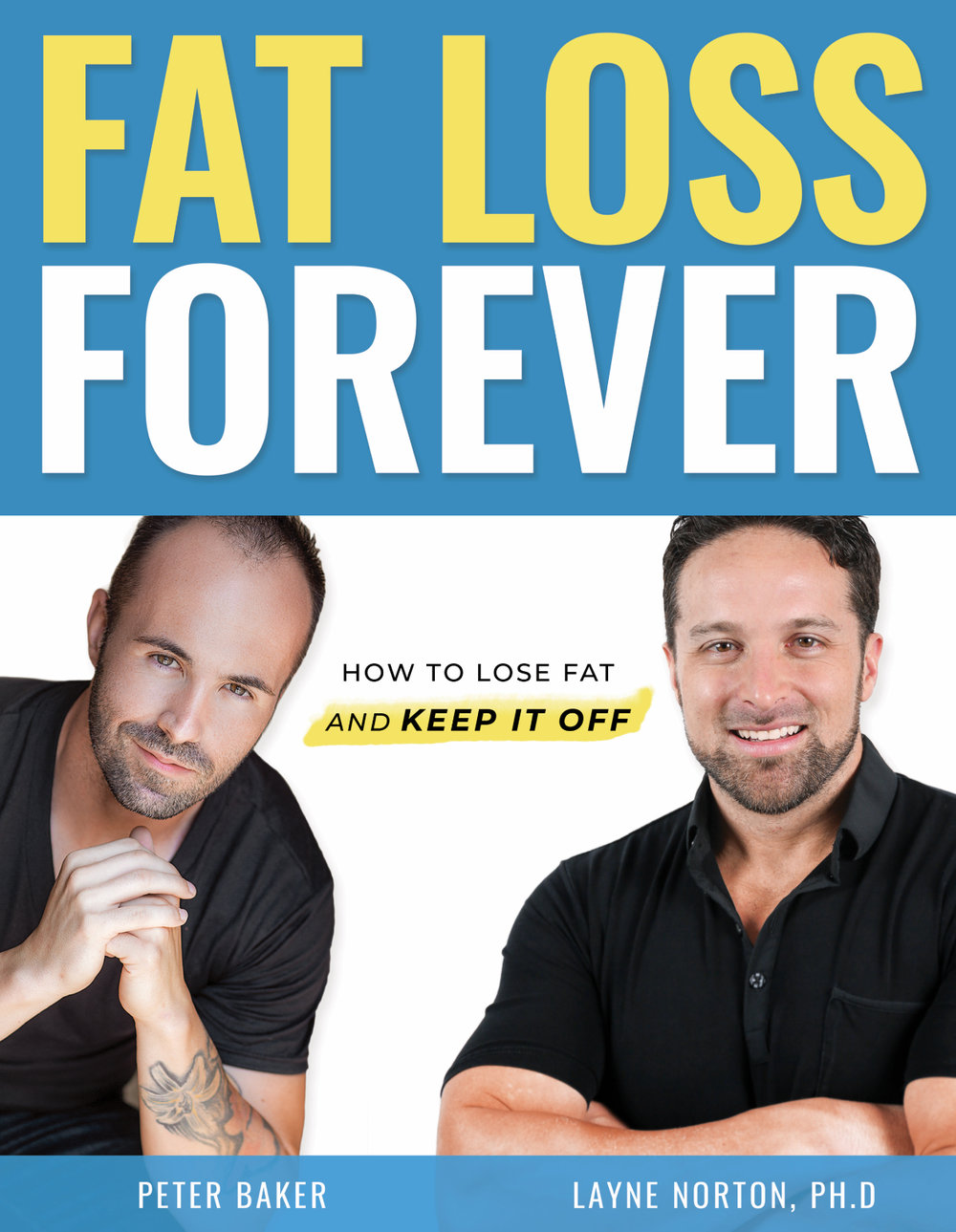
According to the Boston Medical Center 45 million Americans go on a diet each year, with an estimated success rate of a mere ~5%. There is a clear disconnect between starting a diet and long-term weight management; the exact foundation on which Layne Norton and Peter Baker’s new book “Fat Loss Forever: How to Lose Weight and Keep it Off” was created. People love to buy into the latest “quick fix”, but unfortunately, most of these strategies are unsustainable, hence the 5% success rate. In this book, Layne addresses all areas of diet, nutrition, and weight loss, including those that are often neglected because of the undeniable bias you see in the weight loss industry.
 Understanding the fundamentals of weight loss and regain could be a crucial part to your success, as knowing why you are making the changes you make becomes an emotional investment. If you need to lose weight to regain your health and you are serious about taking your health into your own hands, ignorance is not bliss. However, knowledge only goes so far, and as Layne commonly points out, weight loss isn’t the issue, it’s keeping it off. This is where adherence becomes a primary factor, and an underlying theme throughout this book.
Understanding the fundamentals of weight loss and regain could be a crucial part to your success, as knowing why you are making the changes you make becomes an emotional investment. If you need to lose weight to regain your health and you are serious about taking your health into your own hands, ignorance is not bliss. However, knowledge only goes so far, and as Layne commonly points out, weight loss isn’t the issue, it’s keeping it off. This is where adherence becomes a primary factor, and an underlying theme throughout this book.
We believe that the ketogenic diet can be a very successful and maintainable weight loss strategy, that not only aids in weight loss but offers many additional benefits to improve overall health. Historically, the ketogenic diet was used as a treatment for pediatric epilepsy, more recently attention has been given to its application in the treatment of cancer, type-2 diabetes, Alzheimer’s Disease, and more. Today, weight loss, often seen as a side effect of ketogenic therapies, is being explored as a single entity, and it is no secret that many people have experienced amazing success with the diet. That is why Layne considers it a valid option for weight loss and allowed us to contribute an entire chapter to provide the in depth scientific rationale for how the ketogenic diet can be used to create the required calorie deficit needed for weight loss. We also make sure to cover the practical implementation of the diet, which is arguably the most important part!
In our chapter, we cover:
- The history of the ketogenic diet
- What the ketogenic diet is
- How you can modify the diet to suit you
- The metabolic transition into ketosis
- What ketosis is
- The role insulin plays in the transition in and out of ketosis
- How each macronutrient is metabolized and how this impacts the release of insulin
- Ways the ketogenic diet can control your appetite
- Time-restricted feeding in combination with the ketogenic diet
- The anti-inflammatory effect of ketones and what this could offer in terms of performance
- How ketones spare lean body mass
- What to eat on a ketogenic diet
- How to measure ketone levels
- Caveats of a ketogenic diet
For individuals needing to lose weight for the sake of their health and wellbeing, finally finding a strategy that works for you can be extremely liberating. Not only is weight loss accompanied with a decreased risk of several major chronic diseases, but it can increase your quality of life. There is no doubt that there is an emotional component to one’s weight loss journey, and we strongly believe the information in this book can set you on the path to better health. Regardless of whether you are seeking weight loss, this book encompasses everything you could ever want to know about the physiology of fat loss, weight maintenance, weight gain, and realistically can apply to everyone, since we all have a body and we all eat food!
We are very honored to have contributed a chapter on the ketogenic diet to something that we genuinely see helping improve many lives.
Written by: Kristi Storoschuk; Edited by: Dr. Dominic DAgostino
